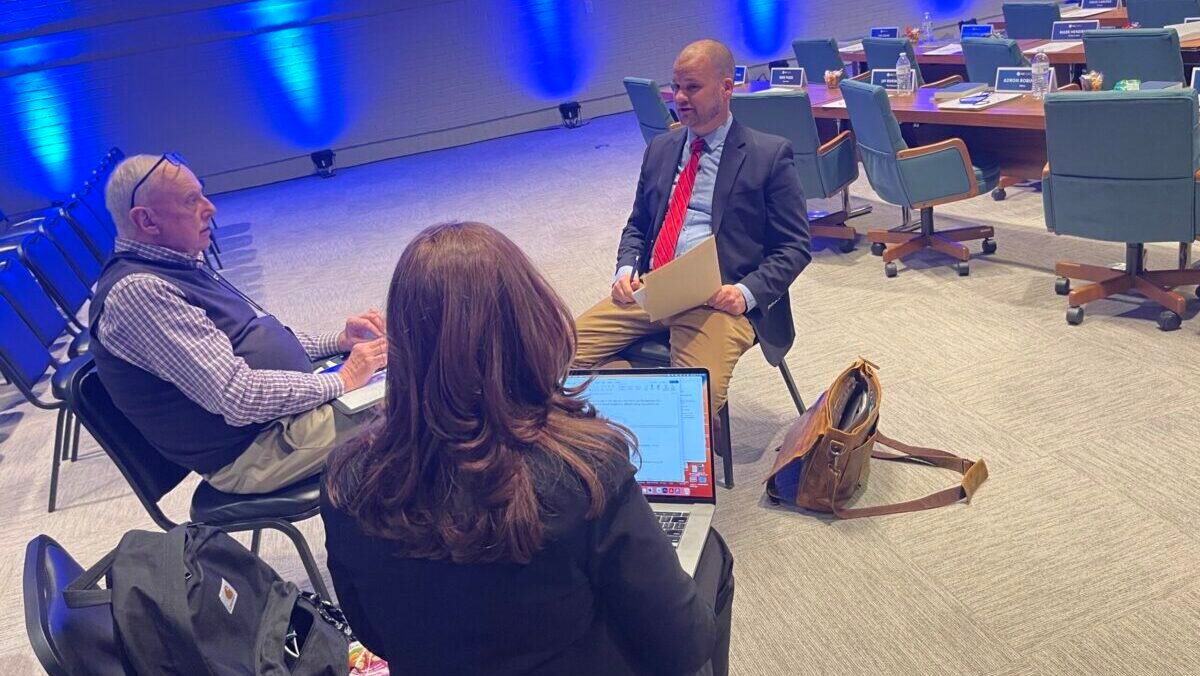Executive Committee members serving on the Finances and Stewardship Development Committee said they want to ensure they have carefully thought through the requests before finalizing a decision on how to proceed.
One motion was made by Rhett Burns, pastor of First Baptist Church in Travelers Rest, South Carolina, to require entities to submit the information found in IRS Form 990 to the convention.
A second motion was made by David Norman of University Baptist Church in San Antonio, Texas, to amend the Business and Financial Plan for printing of financial reports in the Book of Reports and to include information required by Form 990.
Both were referred to the finance committee and have been under discussion since last fall. The meeting today was held under background rules and could not be reported.
Entity leaders have stated opposition to the motions because of the enhanced level of reporting it would require, which would also incur additional costs, as well as concerns related to unintended consequences (potential of being required to release donor information and potential of IRS scrutiny).
Burns confirmed he understands some items should not be included in what is released such as donor information. He also feels confident no IRS scrutiny would result in the voluntary release of the extra financial details.
Some have noted the information being asked for is already released in the entities’ audits that are published in each year’s SBC annual, but Burns disagrees.
After the committee went into executive session, Burns met with editors of Tennessee’s Baptist and Reflector, The Alabama Baptist and The Baptist Paper.
Burns provided the editors with a copy of his remarks to the committee: “I believe our Great Commission cooperation runs on trust. But sadly, as you all know, these days trust is in short supply in our convention. We must restore trust. But that can only be done in the daylight,” he shared.
Burns noted that “it is the bare minimum level of information donors need to evaluate the financial health and trustworthiness of a nonprofit organization.”
“Currently, our entities do not meet this minimum standard. We fail to clear the lowest bar. Instead of leading, we lag behind worldly institutions, operating in financial obscurity where Jesus tells us to walk in the light,” he said.
Burns told the Baptist papers that there’s been a move for greater financial transparency over the last five or six annual meetings without success.
He noted that just recently entities have been asked for information but only three responded and they didn’t really respond with what was asked for.
“I would like for us to move forward with trust. I would like for us to rebuild and restore trust because we don’t have it right now. As long as we operate with less than minimum transparency, I don’t think we’re going to have trust,” Burns said.
Burns predicted that if trust is not restored, more and more churches may disengage with the SBC.
Burns noted his church has given 10 percent through the Cooperative Program for decades, but a group recently has been formed to “evaluate the church’s partnership with the convention.”
In response to a question about what will happen if the EC does not recommend that messengers vote on his motion in June in Indianapolis, he said the issue will not be over. It won’t go way, he predicted. Messengers will continue calling for more transparency from the entities they support.
Burns was complimentary of Adam Wyatt, chair of the finance committee, for allowing him to address the committee and noted he had been fair to him throughout the process. While he understood the committee’s desire for an executive session, he said it was “odd to talk about transparency behind closed doors.”
Burns is hopeful messengers ultimately will have the opportunity to vote on his motion. “I think that’s the fair thing to do. Let the messengers decide rather than finding ways to not let the messenger speak to this.”






